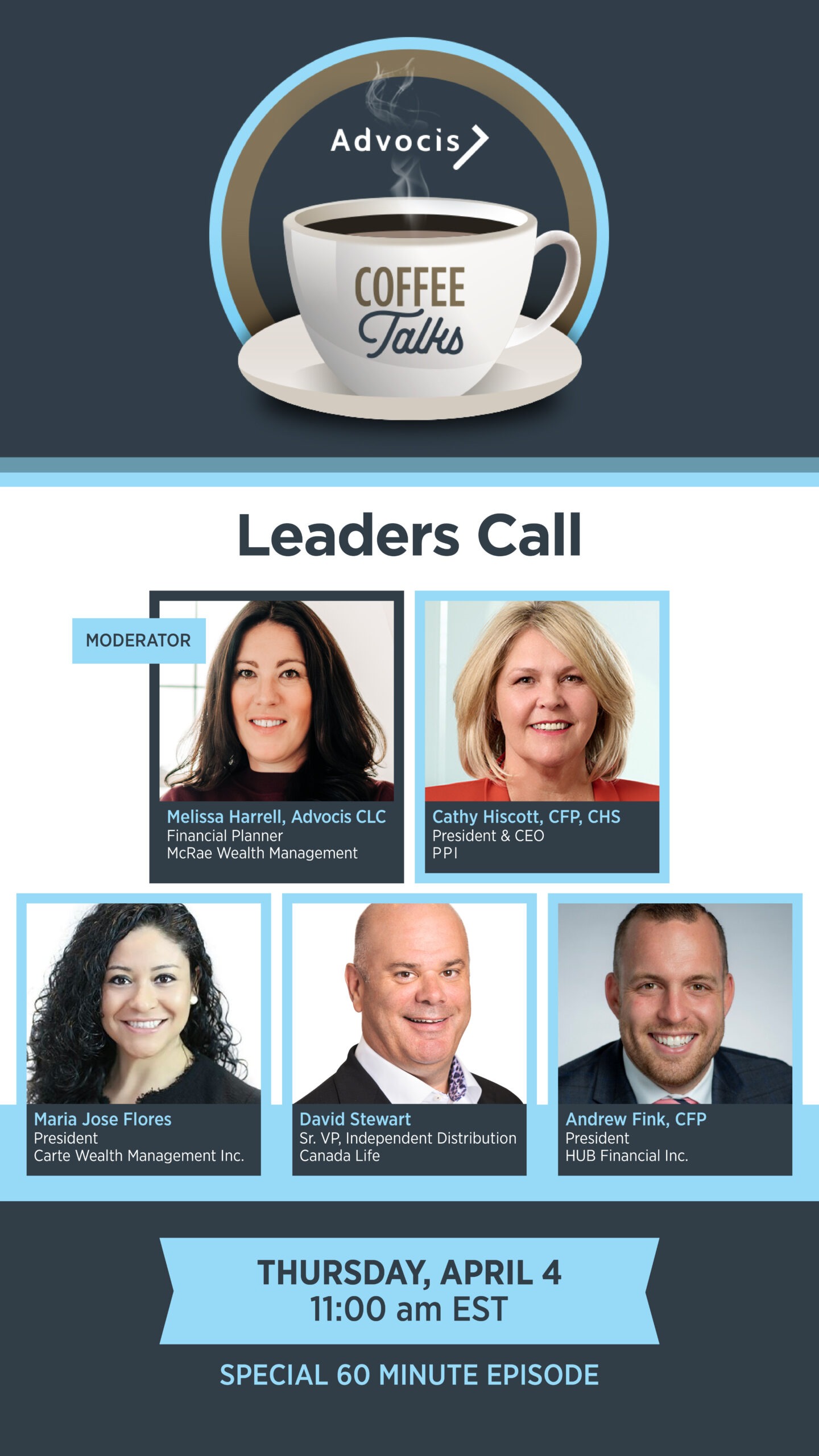This article and interview by Deanne Gage originally appeared in the Sept. 2018 FORUM.
Social work was a natural career choice for Alvin (Al) Jones since his passion is helping others. He loved working with disadvantaged youth, helping them figuring out who they were and how to make better choices in life.
But sometimes, passion only goes so far. Simply put, the daily three-hour, round-trip commute from his home in Barrie, Ont., to his social worker job in downtown Toronto exhausted Jones. He needed a career close to home. Entering the financial services industry seemed like a 180-degree turn, but Jones was attracted to London Life’s new strategy of building client relationships instead of one-off sales transactions. “Their thinking at the time was, ‘We can teach you the math and the finance and everything else through courses and licensing, but we can’t teach people relationship skills,’ ” he explains.
Jones liked that he would continue to do hands on work with people, helping them to identify their goals and aspirations. “It still was about problem solving, and there was still a human element,” he says. “I believe a good communicator and listener really gets to the core of an individual’s aspirations, dreams, and goals.”
That isn’t to say moving from social work to financial services was seamless. Insurance agents prospected for business door to door, and when some homeowners saw Jones, a six foot-tall Black man, standing in their doorway, they took a “significant pause.” Some people wanted to see someone else from London Life, but others were quick to embrace Jones. “It goes back to my social work skills. I see how a person greets me and then I react to them and make them feel at ease, comfortable, and engaged,” he says.
Jones often received death claims as leads since many advisors in his office at the time were uncomfortable dealing with estate planning issues. This is where his social work background assisted him the most. “I was comfortable having those lengthy conversations with people while they were grieving,” Jones says. “You learned how to do that. You knew how to have empathy. That’s the business we’re in, we’re there to help people during this time.” Sometimes, the assistance might have been something small like changing the beneficiary on a policy. “That had no money in it, but it was a benefit to the client,” Jones says.
As Jones progressed in his career, more people came to appreciate his willingness to help. It led to more business down the road, and referrals. In 2005, Jones decided to set up his own shop. A. Jones Wealth and Estate Planning Inc., while still licensed through Freedom 55 Financial, a subsidiary of London Life. A. Jones Wealth and Estate Planning Inc. concentrates on advanced financial planning, insurance, and estate planning strategies for business owners and professionals who are 10 years away from retiring. He also obtained his CFP and CLU designations, along with the ICD.D from the University of Toronto’s Rotman School of Business, and the ACCUD from the Canadian Credit Union Association.
Jones has been a member of Advocis since joining London Life in 1996.As a new advisor, he appreciated the sense of community and belonging he got from the association. In the early days, he’d attend meetings at the local chapter and be intrigued about getting involved. He was elected to the Chapter Board (now called the Chapter Leadership Council) in 2006, eventually becoming chair from 2008 to 2010.
At the suggestion of Kris Birchard, chair of Advocis in 2011, Jones joined the Institute to get more exposure to other parts of Advocis. He eventually became the Institute’s chair in 2014 for a two-year term. From there, he was appointed to the Advocis (The Financial Advisors Association of Canada) board, where he served five years prior to becoming the incoming chair. Jones is the first Black chair of Advocis in its 112-year history. He also serves on a number of community boards, and was the first Black chair for both Peoples Credit Union (now PACE) in 1997 and the Greater Innisfil Chamber of Commerce from 2010–2012, respectively.
Jones has been married to his wife, Suzanne, for 30 years, and has two sons, Adam and Connor. Cool Jones family facts: He’s a sixth-generation Canadian, descended from the 18th century United Empire Loyalists in Truro, Nova Scotia. His uncle is the late Burnley “Rocky” Jones, a legendary Nova Scotian civil rights leader and lawyer. Jones shares his views on professionalism, community building, and Advocis’s evolution.
FORUM: What is your main goal as chair?
Al Jones: As chair, I want to continue to steward our way from a trade association to a professional association. We have a five-year plan. As advisors, we need to continue to raise the professional bar, not only for ourselves and our industry, but also our communities and the Canadians we have the privilege to serve. We believe financial advisors deserve to be acknowledged as true professionals, which means setting and meeting professional standards, and attaining recognized designations. As of January 2019, anybody who wants to join Advocis will need to have a recognized designation, with the understanding that current members will be grandfathered. As advisors, we need to continue to raise the bar, not only for ourselves and our industry, but also our communities and the Canadians we have the privilege to serve.
FORUM: Advocis is introducing a new designation, and it’s coming out soon. Tell us about it.
Al: The Professional Financial Advisor (PFA) designation is aimed at newer advisors. The PFA is a holistic designation that’s not about product; it’s business driven. The PFA has been developed to engage advisors in enhancing their communication and relationship skills; deepening technical financial planning and regulatory knowledge; incorporating ethical practices into a sustainable financial advisory business; as well as developing sales, business, and marketing skills. I think this designation provides the right opportunity for newer advisors to step on the path to professionalism early on in their career.
FORUM: What has been the industry response so far?
Al: We consulted with the fund companies and insurance companies and we’ve received good traction from the industry. Advocis identified a serious gap in the professional development for financial advisors. Obtaining a financial planning designation like the CLU, for example, can be a five-year process for many advisors and they’re still working on building their own book of business during that time. Newer advisors taking the PFA will learn about ethics and compliance, business and marketing, as well as other practical skills that you need to build a sustainable financial advisory business. The PFA is filling that gap between being newly licensed and earning the right to call oneself a professional financial advisor. On the regulatory front, the response has also been positive. Regulators we have spoken with from the insurance and securities sectors all welcome industry initiatives that enhance professional development and positive client outcomes. We are sensing a greater emphasis by regulators for initiatives that will address consumer concerns through behavior modification, and membership in a professional association with a code of conduct and ethics that places the client’s interest above that of the advisor is something that regulators should welcome.
FORUM: Many advisors like yourself are involved in their communities. How will you showcase this?
Al: We don’t shout our successes from the rooftops and that’s going to change. As advisors, our strength is our commitment to our communities and clients. So, it’s important to celebrate and acknowledge our contributions to the community, and the exceptional work and impact our 40 chapters have had in their communities. FORUM: How else does Advocis need to evolve? Al: We need to continue working toward having our board and committees be more reflective of our membership base and of the industry as a whole. We’re looking at our nomination process throughout the association, asking questions like, How do we make sure good talent percolates to the top at all aspects of Advocis? Because we have great people. It’s just being able to recognize who they are and providing them with exceptional opportunities. Kris Birchard was excellent at finding talent. At chapter events, he would observe people who were asking thought-provoking questions and showing interest in getting involved. Then he would find out who those individuals were and follow up with them later on. I also need to do that at chapter meetings and other events happening within our association.
FORUM: Your wife, Suzanne, is now retired. What about your own plans for retirement and succession planning for your practice?
Al: I really enjoy what I am currently doing. I have a junior advisor who’s come on. I’m not thinking about retirement for at least another 10 years. I see the practice with me slowing down, but the practice itself continuing to grow. So, I’ll bring on other advisors and I will work on that as things go down the road.
FORUM: What’s the best part about being an Advocis member?
Al: What I love about the association is that it’s the only place where you can meet with colleagues from across the industry and spend time talking, discussing cases, and getting help from other professionals. You say, “I’m running into this situation I don’t understand,” and people will offer suggestions that might be very helpful for your clients. There’s a real camaraderie. And that community, once I got involved nationally, extends to all provinces. You get to know different people across the country and if my client moves to a new province, I’m able to say, “Hey, there’s a great advisor in Edmonton. Here’s her name, I’ll contact her, and I’ll get you connected.” That’s a good service to our client.
FORUM: Is there enough empathy and compassion in our industry?
Al: Yes, we’re transitioning there. Advocis’s motto for 112 years has been Non Solis Nobis — Not For Ourselves Alone — and that’s really about compassion for our client. And more of us really spend the time getting to know our clients, because that’s the business we’re in. We create long-standing relationships built on trust.
FORUM Sept. 2018. Deanne Gage.








